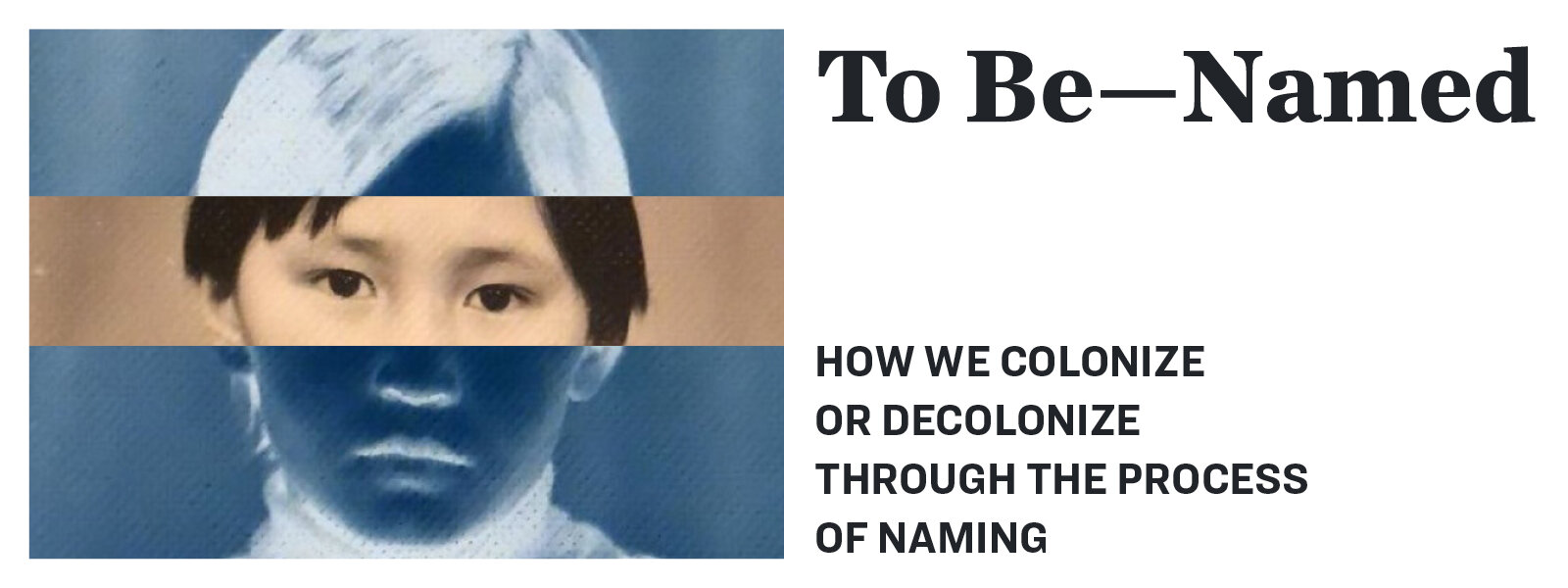Call for essays, analysis and art on the culture, politics, and emotions of how we are named
Names are a key aspect to our identity. They are what we call ourselves and they often determine how we live, how we move through the world and how we are understood or misunderstood. They are also how we are inscribed, documented and recorded by others. Our names carry ancestral lineages and knowledge of our Mother Tongue, as well as cultural knowledge and traditions. As a result, our names embody how we trace ourselves through our known family lines, as well as how we are tracked and followed by the state or government. They are highly personal, at the same time as being wholly political. How is it then, that we rarely explore, investigate and totally face what it means To Be Named?
This call for essays, analysis and art on the culture, politics, and emotions of how we are named takes an interdisciplinary approach and seeks both academic and creative contributions that will be convened in a published volume (both as a book and online publication) and exhibition.
To Be Named is in partnership with the Smithsonian Institution’s Recovering Voices program, the EU funded CoLing project Minority Languages, Major Opportunities. Collaborative Research, Community Engagement and Innovative Educational Tools (see https://coling.al.uw.edu.pl/about-us/), and the Experimental Humanities Collaborative Network (EHCN) sponsored by the Open Society University Network.
Through this call, edited volume and exhibition, we will explore the cultural politics of naming—at the same time as building mutual understanding between groups around the processes involved in identification through names. We seek analytical essays that help us rethink how names mean and to whom, as well as art work inspired by this theme—in all media (sound, photography, video, poetry, painting, paper, installation, performance, etc.)—which explores what is means to be named. Creative, analytical and exploratory approaches are encouraged—from databases revealing statistical naming patterns, to linguistic analysis that gives insight into cultural practices, to personal narratives on how a name defines or does not define you.
Guidelines for Abstract/Art Submission: Please select the most appropriate general topic for your submission from the following themes: political aspects of naming (gender, race, and power structures); Indigenous methodologies, decolonization and cultural revitalization methods (toponyms, cosmologies, and place names); personal narratives; linguistic analysis of naming practices and onomastics. Please submit your abstract/art submission in your Mother Tongue together with the English translation. Please include following information with your submission: a short biography indicating affiliation and academic degrees. Maximum length of your abstract should be 300 words; this count excludes the abstract title, authors and their designations, but the 300 word limit INCLUDES up to 3 references. We accept submissions from all over the world.

